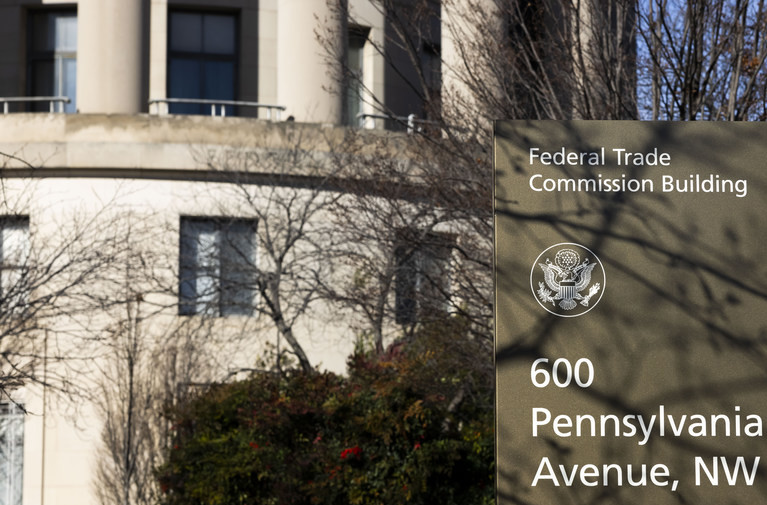FTC Claims Meta Holds Unlawful Social Media Monopoly in Post-Trial Arguments
In a high-stakes legal battle, the Federal Trade Commission (FTC) concluded its six-week antitrust trial against Meta Platforms, Inc. on May 27, 2025, accusing the tech giant of maintaining an illegal monopoly in personal social networking through its acquisitions of Instagram and WhatsApp. Post-trial arguments, detailed in sources like Legal Newsfeed and The Hill, underscore the FTC’s case that Meta’s actions stifled competition, while Meta counters that the very concept of personal social networking is outdated. The case, pending before U.S. District Chief Judge James E. Boasberg in Washington, D.C., could reshape Big Tech regulation and impact U.S. consumers, businesses, and global markets.
The FTC’s Case: A Monopoly Built on Acquisitions
The FTC, joined by 46 states, filed the lawsuit in December 2020, alleging that Meta (then Facebook) engaged in a “systematic strategy” to eliminate competition through its 2012 acquisition of Instagram for $1 billion and 2014 purchase of WhatsApp for $19 billion. The agency claims Meta targeted these “up-and-coming rivals” to neutralize competitive threats, thereby dominating the personal social networking market—defined as platforms centered on sharing with friends and family, like Facebook, Instagram, Snapchat, and MeWe.
In post-trial briefs, the FTC argued that Meta’s acquisitions prevented consumers from enjoying the benefits of competition, such as increased choice, quality, and innovation. The agency highlighted internal emails from Meta executives, including former COO Sheryl Sandberg, expressing concerns about Instagram’s mobile-friendly threat to Facebook’s dominance. The FTC also accused Meta of imposing anticompetitive conditions on software developers to maintain its market power. If successful, the FTC seeks to force Meta to divest Instagram and WhatsApp, potentially dismantling its social media empire.
Meta’s Defense: Social Media Has Evolved
Meta’s post-trial arguments, as reported by Fast Company, assert that the FTC’s definition of personal social networking is obsolete, arguing that “social networking no longer exists” as a distinct market. The company contends that platforms like TikTok and YouTube, driven by algorithmically curated “unconnected” content, have redefined social media, making Meta’s acquisitions of Instagram and WhatsApp irrelevant to current market dynamics. Meta’s legal team, led by Mark Hansen, emphasized in court that the company faces “steep competition” from these rivals, citing TikTok’s explosive growth as evidence that Meta’s market power is not absolute.
Meta also argued that its acquisitions fueled Instagram’s and WhatsApp’s growth, scaling Instagram’s user base “hundredfold” by 2018, per CEO Mark Zuckerberg’s testimony. The company pointed to a 2013 YouTube outage, during which users flocked to Instagram, as proof of competitive pressure driving innovation like Facebook Live. Meta’s chief legal officer, Jennifer Newstead, called the FTC’s claims “weak,” arguing the firm operates in a “dynamic and hypercompetitive space.”
The Trial: Key Moments and Testimony
The trial, which began April 14, 2025, featured intense scrutiny of Meta’s practices. Zuckerberg testified for three days, defending the acquisitions as pro-competitive and denying intent to stifle rivals. The FTC called former COO Sheryl Sandberg and Instagram co-founder Kevin Systrom, whose emails revealed early concerns about competition. The agency’s expert, Scott Hemphill, argued that Meta’s shift to short-form video (e.g., Reels) does not negate its dominance in friend-based content, dismissing user shifts to apps like Candy Crush during a 2021 Facebook outage as irrelevant.
Meta countered with expert Dennis Carlton, who found no evidence of price discrimination in ad exposure, challenging the FTC’s claim that Meta manipulates ad loads to retain younger users. On the final trial day, Meta accused Hemphill of bias, intensifying the battle over market definition.
Public and Expert Reactions
The case has ignited fierce debate. On X, @TechPolicyNow posted, “FTC vs. Meta could redefine Big Tech breakups—Instagram and WhatsApp on the chopping block?” @InnovationFirst countered, “Meta’s right—social media isn’t just friends anymore. TikTok’s the real threat.” Legal analyst Joe Berkowitz of Fast Company questioned the FTC’s outdated market view, noting TikTok’s rise undermines monopoly claims.
Experts like CNET’s Katelyn Chedraoui argue Meta’s acquisitions “boxed out competitors,” limiting consumer choice. Conversely, Meta’s spokesperson told CNET the case “defies reality,” pointing to fierce competition. The Wall Street Journal reported Zuckerberg’s failed $1 billion settlement offer, highlighting the FTC’s push for a $18 billion penalty and divestiture.
Implications for U.S. Stakeholders
Economic Impact: A Meta breakup could disrupt its $135 billion ad revenue stream, affecting the $600 billion U.S. digital ad market. Smaller platforms like Snapchat might gain, but consumers could face fragmented services. Investors in Meta, with a $1.4 trillion market cap, face uncertainty, with shares dipping 2% post-trial.
Social Dynamics: Social media shapes U.S. culture, with 70% of adults using platforms daily, per a 2025 Pew Research poll. A divestiture could alter user experiences, potentially splitting networks like Instagram (2 billion users) and WhatsApp (2.7 billion users).
Political Context: The case, a holdover from Trump’s first term, tests Biden-era antitrust vigor under FTC Chair Lina Khan, whose aggressive stance faces scrutiny after a 2021 dismissal of the case. With 2026 midterms looming, a ruling could sway tech policy debates.
Looking Ahead: A Pivotal Ruling
Judge Boasberg’s forthcoming decision could set a precedent for Big Tech regulation. If the FTC prevails, Meta may be forced to divest Instagram and WhatsApp, reshaping social media. If Meta wins, it could embolden tech giants to pursue similar acquisitions. As Cryptopolitan notes, the outcome hinges on whether the court sees Meta’s dominance as harmful or its competition as robust. For U.S. consumers, the stakes are high: a market with more choice or a fragmented digital landscape.
